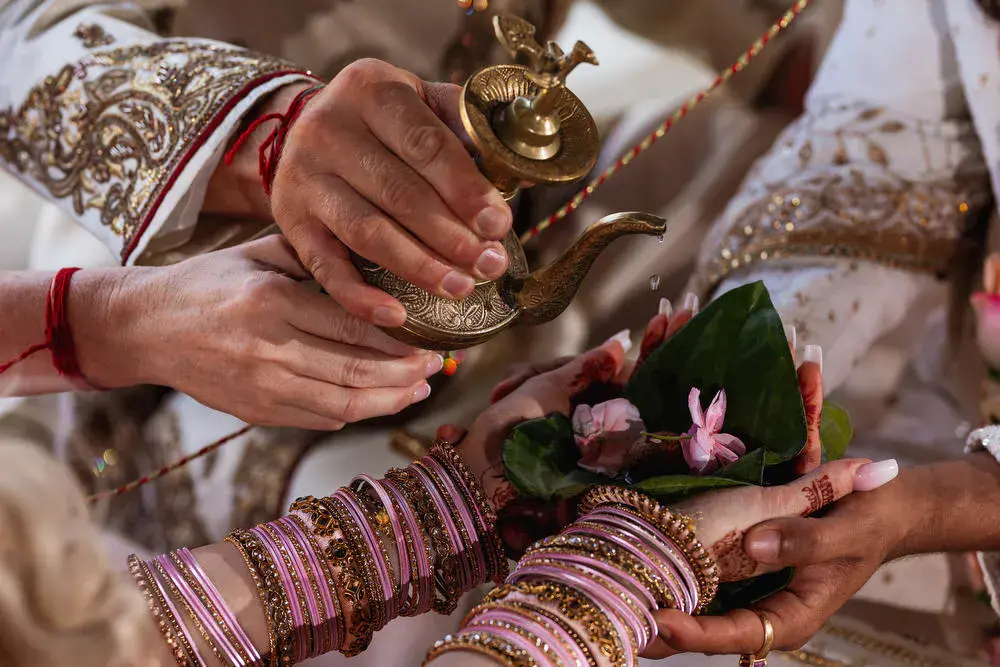Inter-caste marriages have long been a contentious issue in India. Despite progress in various societal spheres, such unions continue to face numerous challenges. Therefore, this blog aims to explore the reasons behind the difficulties faced by inter-caste couples in India. By delving into historical, cultural, social, and legal aspects, we can better understand the complexities and implications surrounding inter-caste marriages in the country.
Understanding The Complexities And Implications
I. Historical Background
Caste System:
The rigid caste system has been deeply ingrained in Indian society for centuries, dividing people into hierarchical groups.
Endogamy Tradition:
The traditional preference for endogamy has led to the preservation of caste boundaries and the resistance to inter-caste marriages.
Colonial Legacy:
The British Raj further institutionalized caste divisions, reinforcing social prejudices and discrimination.
II. Social and Cultural Factors
Social Stigma:
Inter-caste marriages face severe social stigma in India. The caste system, indeed, assigns individuals specific roles, responsibilities, and expectations based on their birth. Consequently, marrying outside one’s caste challenges these preconceived notions and disrupts the social order. Inter-caste couples often become targets of ridicule, gossip, and discrimination. Moreover, they may experience isolation from their communities, loss of social support, and exclusion from religious and cultural events. As a result, the fear of facing societal backlash and the potential impact on their social standing deters many individuals from pursuing inter-caste relationships.
Family Honor
Additionally, family honor and reputation hold great importance in Indian society. The notion of upholding family prestige and preserving ancestral lineage is deeply ingrained. Thus, inter-caste marriages are often perceived as a threat to family honor, as they challenge the caste-based structure. Families fear, understandably, that their reputation will be tarnished if a member marries outside the caste. This fear is amplified by the potential for retaliation from other family members, extended relatives, and the wider community. Consequently, the pressure to conform to societal expectations and maintain family honor becomes a significant barrier for inter-caste couples.
Incompatible Customs:
Indian society comprises a diverse range of castes, each with its own set of customs, rituals, and traditions. Marrying someone from a different caste can result in clashes between these practices. Inter-caste couples may face opposition from conservative family members who perceive such unions as a threat to their cultural identity. They may encounter resistance when attempting to blend customs and rituals from both castes, leading to strained relationships within the family and community. The differences in dietary habits, language, social norms, and even dialects further contribute to the complexities of inter-caste marriages.
Loss of Privilege:
Higher castes in India historically enjoyed privileges, access to resources, and societal advantages. Marrying outside the caste can be seen as a loss of these privileges, leading to resistance from individuals belonging to higher castes. The fear of losing social status, economic benefits, and opportunities for their children often discourages higher caste individuals from considering inter-caste marriages. The preservation of caste-based privileges becomes a barrier, perpetuating social inequalities and limiting the scope for social mobility.
Impact on Children:
Inter-caste marriages can also create challenges for the children born out of such unions. They may face an identity crisis, feeling torn between multiple cultural identities and struggling to find acceptance in either caste. The caste-based discrimination prevalent in society can also affect the educational and career prospects of these children. The lack of belongingness and potential prejudice from both caste communities adds another layer of complexity to the inter-caste marriage equation.
By acknowledging and understanding these social and cultural factors, it becomes evident that the path to accepting inter-caste marriages in India requires a collective effort to challenge deep-rooted biases and foster a more inclusive society. Promoting dialogue, encouraging inter-caste interactions, and embracing diversity can help break down barriers and pave the way for a society where inter-caste marriages are celebrated rather than stigmatized.
III. Progressive Steps and Initiatives
Awareness and Education:
Promoting awareness about the importance of inter-caste marriages and their contribution to societal harmony is crucial. Educational institutions, community organizations, and government bodies can play a significant role in organizing workshops, seminars, and awareness campaigns to challenge deep-rooted biases and stereotypes. By highlighting the benefits of inter-caste marriages, such as cultural enrichment, mutual understanding, and social integration, we can foster a more accepting environment.
Legal Reforms:
Additionally, strengthening existing laws and implementing stringent measures to protect the rights of inter-caste couples is essential. It is crucial, therefore, to ensure that legal provisions are effectively enforced and that couples facing harassment or discrimination receive timely justice. Creating specialized legal support systems that cater specifically to inter-caste marriage cases can, consequently, provide the necessary guidance and assistance to couples navigating through legal complexities.
Social Change:
Moreover, influential figures, including celebrities, community leaders, and media personalities, can play a vital role in promoting inter-caste marriages through positive representation. Their support and endorsement can challenge societal norms and inspire others to embrace inter-caste relationships. Encouraging inclusive narratives in popular media platforms, television shows, movies, and literature can, therefore, help reshape societal perceptions and debunk stereotypes associated with inter-caste marriages.
Support Networks:
Establishing support networks for inter-caste couples can provide a safe space for sharing experiences, seeking advice, and finding emotional support. Non-governmental organizations (NGOs) and community-based organizations can facilitate the creation of such networks, organizing support groups, counseling services, and helplines to assist couples facing challenges.
Inter-caste Marriage Incentives:
Furthermore, introducing incentives and benefits for inter-caste marriages can help overcome economic barriers. Government schemes, such as providing financial assistance for inter-caste couples, offering educational scholarships for their children, or prioritizing employment opportunities, can incentivize individuals to choose their life partners based on love and compatibility rather than caste considerations.
Grassroots Movements:
Finally, grassroots movements advocating for the acceptance of inter-caste marriages can play a pivotal role in driving social change. By organizing rallies, peaceful protests, and community events, these movements can raise awareness, challenge social norms, and foster dialogue on the importance of inter-caste relationships in building a more inclusive society.
By implementing these progressive steps and initiatives, we can gradually transform societal attitudes towards inter-caste marriages in India. It requires a collective effort from individuals, communities, institutions, and the government to break down barriers, challenge prejudices, and embrace the principles of equality and love. Only by striving for a society that values individual choice and mutual respect can we create a more inclusive and harmonious future for inter-caste couples in India.
Overcoming these difficulties will, undoubtedly, contribute to the dismantling of the rigid caste system and promote social harmony. It is essential to recognize the inherent value of inter-caste marriages in fostering cultural exchange, breaking down stereotypes, and promoting unity among diverse communities by embracing love and respect as the guiding principles.
Ultimately, we can create an environment that celebrates diversity and upholds the principles of equality, thereby paving the way for a more inclusive and progressive India. Inter-caste marriages have the potential to redefine societal norms and reshape the future, offering a ray of hope for a more harmonious and egalitarian society.












